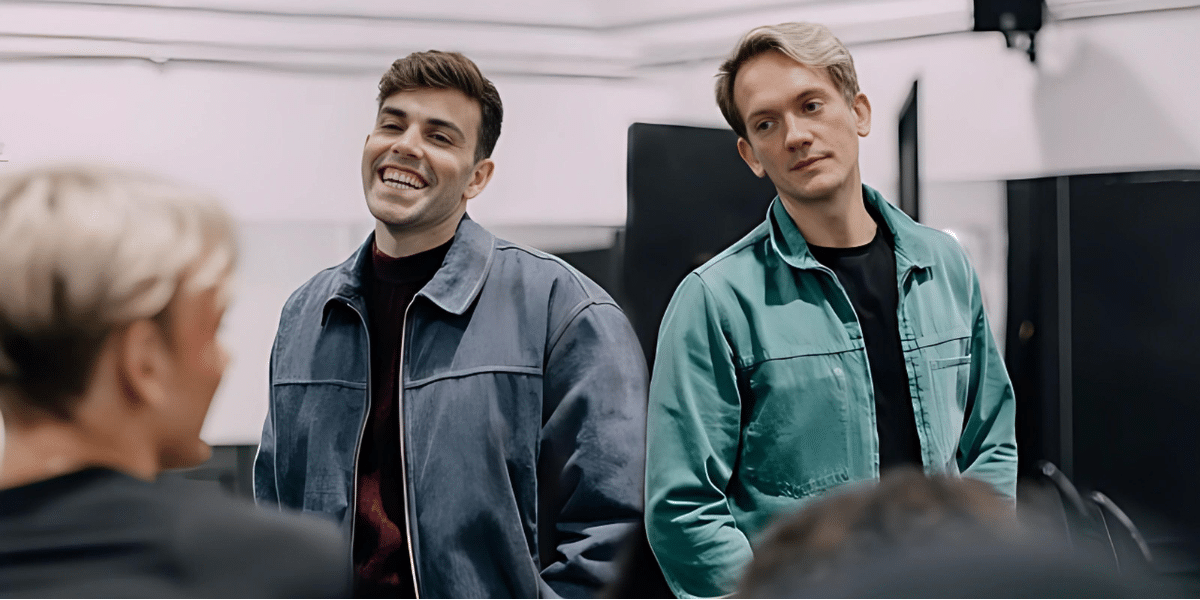From business deals and the company’s carbon footprint to employee culture, the life of a CEO is always occupied and forever changing. To grasp some insight into the life of a busy business leader, we sat down with Edward Dalton, founding partner and CEO of Noon Dalton.
Can you share a pivotal moment in your career that shaped your leadership style and approach to running a company?
I think the most pivotal moment for any leader, and it certainly was for me, was when I was able to admit that there were things I did not understand. Being able to know that you do not know everything and then spending time either learning or seeking people who have those answers for you is a part of leadership that is often overlooked. I have been lucky to be a part of EO and now YPO, both of which have taught me that “keeping a stiff upper lip” is detrimental to you and your team. Be vulnerable enough to admit what you do not know and grow from there. This realization has led me to be more open with my team about not having all the answers, which has fostered a culture of curiosity and self-improvement in Noon Dalton.
In today’s rapidly changing business landscape, what strategies have you employed to ensure your company remains agile and adaptable?
One of Noon Dalton’s core values is continuous improvement. As a company, we put learning and personal development at the forefront of our day-to-day. We encourage our employees not only to grow within their roles but within themselves, too. Noon Dalton University is there to assist with any professional development the teams may wish to do, and we offer a variety of personal development courses that help our teams to be the best versions of themselves. By doing this, our teams and our company can adapt to challenges better and keep up with life as demands grow in magnitude. We also like to be at the forefront of changes within the industry. As an example, we know that AI (Artificial Intelligence) is only going to get stronger, so we have set up a team of AI champions to help guide the company and our clients by learning, testing, and reviewing what they think will be practical for us in the future.
Sustainability and environmental responsibility are increasingly important to consumers. How has your company embraced sustainability initiatives, and what results have you seen from these efforts?
Noon Dalton is an avid supporter of Impact Sourcing. We care about and consider the impact we have on communities in every aspect of our business. From helping our staff and their families to supporting the wider community, we try to have a positive impact wherever possible. We have partnered with various charities to support the most at-risk communities within our purview. For example, we work with a charity called Pratham to educate young children, females, and at-risk youth in India. We have put children through school in the Philippines and assisted during natural disasters in the community. We have also started a program for our employees where, during the holidays, everyone is gifted a tree that they can then choose where to plant and which community it will benefit. The results of these efforts can be summed up in the number one. One child educated is one person who can get a better job. This results in one family who can break the cycle of poverty. It is one family who is then able to give back to the community from which they came. It is one world that has changed for the better. So, our goal is always to start with one. A ripple grows into a wave.
Many successful CEOs emphasize the importance of company culture. How do you cultivate a positive and innovative culture within your organization, and why is it essential?
At the end of the day, we are nothing without our people. Being in an industry dependent on people, it is concerning that some outsourcing companies do not put their staff well-being first. A big part of what we try to do in Noon Dalton is to keep an open dialogue and transparency throughout the company. Just last week, a team member came to me to discuss something they were uncomfortable about. Few leaders would bother, or the employee would not feel comfortable going directly to the CEO with an issue. I am all for communication chains, but it is vital to remember that each person in the company is as essential to its running as the other. As the owner and CEO of a business, everyone is your responsibility. However, it is necessary to provide them with the tools to be responsible for themselves. The level of confidence it builds will help them, even long after they have worked at your company. The culture you create in your company directly affects how long your staff wishes to be there. Remuneration is only one aspect that affects overall happiness within employment. If your employees do not feel like they can grow and be recognized for their contribution, they are less likely to want to stay. Be loyal to your people, and they will do the same for you. That is why it is essential. Our people are all we have.
The digital transformation has had a profound impact on businesses. Can you describe how your company has leveraged technology to stay competitive and deliver value to customers?
This is an exciting question for us as we see the changes happening within AI and machine learning. Both will change the business landscape as we know it, and much faster than people think. As the CEO, I have gone through 40 hours of in-person training, and I will soon be certified as a coach through YPO’s Train the Trainer program. Internally, Noon Dalton has appointed AI champions within each department to embrace the oncoming changes and advocate for our clients by offering them solutions they do not have to learn about themselves. We are taking the stumbles so that everyone else can run unencumbered.
What role do ethics and corporate social responsibility play in your decision-making processes as a CEO, and can you provide an example of a decision where these principles were paramount?
This is a challenging question because, for us, it is less about “corporate responsibility” and more about our responsibility as humans. For Noon Dalton, people come before profit. We strive to do the right thing, always. We have had numerous instances since 2009 where we have worked with other groups and clients who have intentionally done wrong. And while it may affect business, we would prefer to make less money and part ways with those who go against our integrity rather than stay with them for the sake of profits. While it would not be the right thing to give examples, we can say that there have been instances where clients have either taken advantage of or treated our staff poorly, and we have asked the client to seek outsourcing elsewhere. At the end of the day, either you do the right thing or you do not. And no matter the reasoning, we hold on to those who do the right thing. Integrity and empathy should extend beyond contract negotiation. They should be at the forefront of every interaction and every decision.
As globalization continues, international markets become increasingly significant. How does your company approach expanding into new markets and navigating diverse cultural landscapes?
Since 2009, Noon Dalton has been global, and we continue to expand to new locations. As it stands, we operate out of the USA, UK, Germany, India, the Philippines, Kosovo, and South Africa. I think the biggest thing that we have learned, multi-culturally, is that we all have commonalities that join us, and we all have differences that we should celebrate. Being curious and open to learning about diverse cultures makes it so much easier to find common ground. It also takes humility to know that your culture is not automatically correct. It is best not to enter any cultural exchange with the idea that what you are used to and what you have experienced is the superior way of being. Especially when considering it from a “first world” and “developing world” perspective. Be humble, listen, and be open to learning.
Employee development and talent acquisition are vital aspects of any organization’s success. What strategies do you employ to attract, retain, and develop top talent within your company?
This is simple: hire the right people, pay them well, provide more than salary, and respect what they do. Not everyone cares as much about money as about work/life balance. Some people only care about money. It is vital to know the people who work for you and what drives them. If you do not understand your people, you will not have any hope of keeping them, so allow them to take charge of their workplace development. It is all very well to offer training, but if they feel like all they are doing is learning the same thing repeatedly, they will seek a different job. Help them grow and develop, both professionally and personally, even if it means they will outgrow the role you hired them for. You will have done right by them, and they will remember and be better off for it.
Economic uncertainty is a constant challenge for businesses. How do you navigate economic downturns and crises while ensuring the long-term sustainability of your organization?
For Noon Dalton, we have always made sure that we have sufficient cash reserves to see us through challenging times. We do not spend more than we must. It is vital to have proper budgets and forecasting to know where you stand and when to tighten the belt. During tough times, it is important to reinvest in your business development sectors like sales and marketing. You cannot grow when you are focusing on staying the same.
The business world is often demanding, and CEOs face intense pressure. How do you manage stress and maintain a work-life balance while leading a successful company?
This is a challenging one for me. I am both CEO and owner, so I find it hard to shut off. I worry for my business as if it were a child. I have seen it from birth to where it is now, and that worry does not go away easily, even when it is thriving. I feel a lot of guilt when I take time off. I think the easiest way for me to get around this guilt has been to segment my life into different quadrants. There’s work time, me time, family and friend time, exercise time, etc. I try to balance them out as best I can so that I can focus on whichever quadrant I am in during my day. If I am at the gym, I am AT the gym, not thinking about meetings or emails. If I am with my partner, I am focused on that. I don’t always get it right, and it is very much about how practice makes perfect, but it has been the best way to make sure that I am giving fully to whichever sector needs my attention. One thing I have found to be tremendously helpful is to write it down and check it off. When you write it down, you are far more likely to get it done than if you have a mental list. This goes for everything – job, personal, relationship. Write it all down and check it off when complete. Your gym time is just as important as the meeting you have booked. Nothing outweighs the other except true emergencies. Show up for yourself, personally and professionally.
Through the pressures of leading a business, you must keep your eye on the ball. Our chat with Dalton has provided a ‘fly on the wall’ insight into the life of managing a company, its challenges and most vitally, its rewards.










